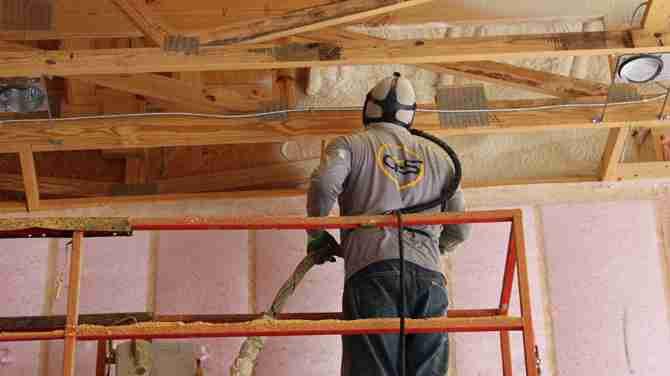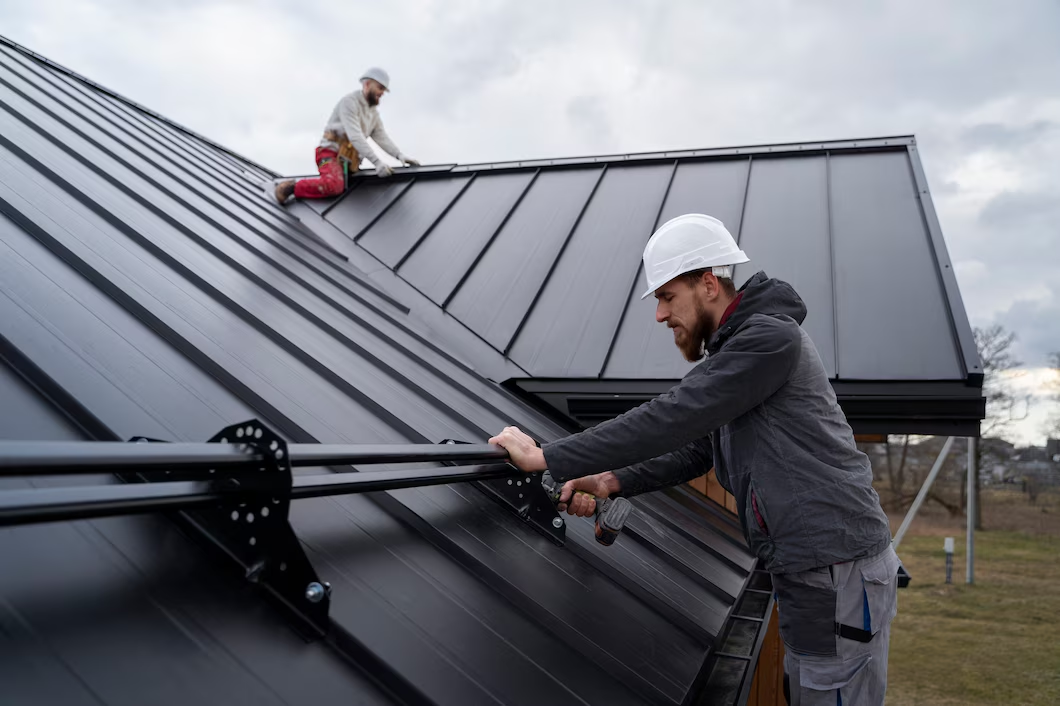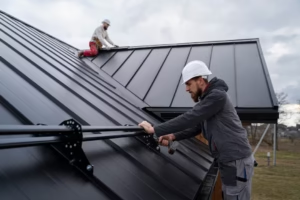Commercial Spray Foam Insulation: The Ultimate Solution for Durability and Energy Efficiency
In today’s business landscape, efficiency is a necessity. As industries focus on reducing energy costs and their environmental footprint, commercial spray foam insulation (SPF) has emerged as a top solution. Combining unmatched durability with superior energy-saving capabilities, SPF is transforming commercial buildings into high-performance spaces.
In this article, we’ll dive into the benefits of spray foam insulation for commercial buildings in St. Louis, Missouri. We’ll explore how it balances energy efficiency and durability, and why businesses are increasingly turning to it for their insulation needs.
What Is Commercial Spray Foam Insulation?
Spray foam insulation is a high-performance material applied to walls, ceilings, and various surfaces by spraying a chemical mixture (typically polyurethane) that rapidly expands to form an airtight, seamless barrier. This unique composition allows it to fill every gap, crack, and crevice, making it one of the most effective insulation methods.
There are two types of spray foam commonly used in commercial applications:
- Closed-cell spray foam: Dense and rigid, offering superior thermal resistance (R-value) and moisture control. It also enhances structural strength, making it ideal for demanding commercial environments.
- Open-cell spray foam: Lighter and less dense, providing excellent soundproofing and insulation for interior spaces. While it offers a lower R-value than closed-cell foam, it’s suitable for certain non-exterior applications.
For commercial buildings, closed-cell spray foam is the preferred choice due to its durability, strength, and exceptional energy-saving properties.
Durability: Built to Last
One of the standout features of commercial spray foam insulation is its durability. Here’s how it delivers long-lasting performance for commercial buildings:
1. Extended Lifespan
Once installed, spray foam insulation maintains its form and effectiveness for decades, requiring little to no maintenance. Unlike traditional insulation materials like fiberglass or cellulose, spray foam doesn’t sag, settle, or degrade over time. This longevity makes it a smart, cost-effective investment for commercial properties.
2. Water Resistance
Closed-cell spray foam acts as an effective barrier against moisture, preventing the buildup of mold and mildew. Its water-resistant properties add to its durability, protecting both the insulation and the building’s structural integrity in damp or humid conditions.
3. Enhanced Structural Strength
Beyond insulation, closed-cell foam hardens into a rigid layer that reinforces walls, ceilings, and floors. This added structural support is crucial in commercial buildings, especially those exposed to harsh environmental conditions or requiring additional strength.
Energy Efficiency: Lower Costs, Higher Performance
Durability is just one side of the coin—energy efficiency is where spray foam insulation truly shines. For commercial properties with high energy demands, spray foam offers significant cost savings. Here’s why it’s considered one of the most energy-efficient insulation options:
1. Superior R-Value
The R-value measures a material’s resistance to heat flow. Closed-cell spray foam boasts one of the highest R-values available, often reaching R-6 to R-7 per inch. This high R-value ensures superior thermal insulation, helping to maintain consistent indoor temperatures and reducing the load on HVAC systems.
2. Air Sealing Capabilities
One of the major sources of energy loss in commercial buildings is air leakage, which can account for up to 30% of heating and cooling costs. Spray foam creates an airtight seal that blocks these leaks, drastically reducing energy waste and cutting utility bills.
3. Moisture and Vapor Barrier
Spray foam doesn’t just block air—it also acts as a barrier against moisture. Closed-cell foam effectively prevents water and vapor infiltration, which helps to maintain indoor air quality, reduce the risk of mold, and keep HVAC systems running efficiently.
The Comprehensive Benefits of Spray Foam Insulation in Commercial Buildings
Commercial spray foam insulation offers more than just energy efficiency and durability. Here are some additional benefits that make it a top choice for businesses:
1. Cost Savings
Though the upfront cost of spray foam insulation may be higher than traditional insulation materials, the long-term savings are substantial. Reduced energy bills and minimal maintenance costs mean the insulation can pay for itself in just a few years, making it a wise financial investment.
2. Environmental Impact
Energy-efficient buildings contribute to a smaller carbon footprint, and spray foam insulation helps achieve this by lowering energy consumption. Plus, many spray foam products are now made with eco-friendly materials, aligning with sustainability goals.
3. Versatility
Spray foam insulation is versatile enough to be used in a variety of commercial applications, from walls and ceilings to floors and roofs. It’s equally effective in new construction projects and retrofitting older buildings, making it adaptable to different business needs.
4. Soundproofing
While open-cell spray foam is known for its soundproofing abilities, even closed-cell spray foam can help reduce noise in commercial settings. This can be a significant advantage in busy office buildings or industrial environments, where controlling sound can enhance productivity and comfort.
Conclusion
Commercial spray foam insulation stands out as a durable, energy-efficient, and cost-effective solution for businesses looking to enhance building performance. Its ability to seal gaps, provide superior thermal insulation, and add structural strength makes it a smart investment for commercial properties in St. Louis and beyond.If you’re ready to reduce energy costs and boost the longevity of your building, consider Commercial Spray Foam Insulation. Contact us today to learn more about how spray foam can benefit your business!













Post Comment